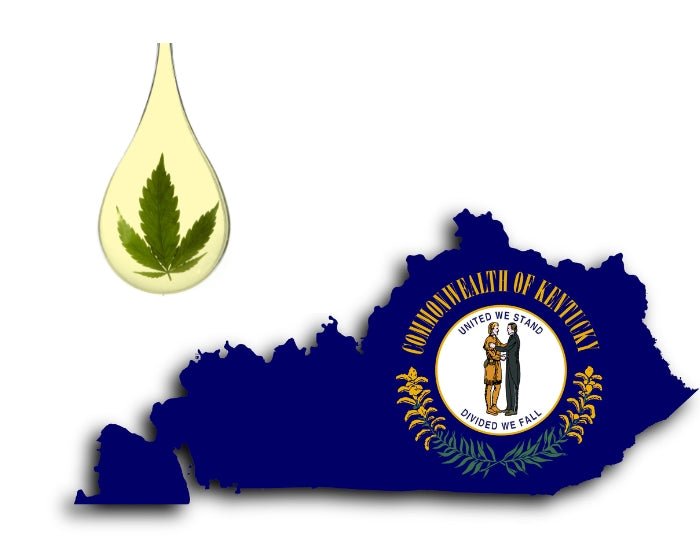The international body says the United States is in violation of a long-standing treaty against the legalization of recreational cannabis among member nations.

Last week the United Nation's International Narcotics Control Board (INCB) issued a "warning" to the U.S. concerning its non-compliance with the 1961 Single Convention on Narcotic Drugs. As first reported by High Times, the INCB asserts in its Annual Report 2022 that the recent wave of adult-use cannabis legalization laws passed by many states in recent years violates the decades-old treaty signed and ratified by all U.N. members in 1961.
Since the treaty's signing, the U.N. has routinely criticized countries for enacting legalization reforms. However, what makes this statement by the global organization different is the indirect inference of state-level initiatives in the U.S.
Much of the focus and concern of the message centers on the potentially harmful effects on American youth in states where marijuana is legal. In the report, the INCB asserts, "The most concerning effect of cannabis legalization is the likelihood of increased use, particularly among young people, according to estimated data. In the United States, it has been shown that adolescents and young adults consume significantly more cannabis in federal states where cannabis has been legalized compared to other states where recreational use remains illegal."
"The most concerning effect of cannabis legalization is the likelihood of increased use, particularly among young people, according to estimated data. In the United States, it has been shown that adolescents and young adults consume significantly more cannabis in federal states where cannabis has been legalized compared to other states where recreational use remains illegal."
- The UN's International Narcotics Control Board Annual Report
According to the U.N. 1961 Single Convention on Narcotic Drugs, member states must enforce the provisions of the Convention within their respective territories. However, since most nations do not have a federalist or republican structure like the U.S., state laws do not appear to hold much legal weight.
As the language of the Convention states, "Unless a different intention appears from the treaty or is otherwise established, a treaty is binding upon each party in respect of its entire territory. The internal distribution of powers between the different levels of a State cannot be invoked as a justification for the failure to perform a treaty."
The practical impact of the INCB analysis is unclear. However, there is not much concern on the part of government officials, both federally and at the state level. Countries such as Canada and Uruguay, which have federally legalized cannabis, have suffered zero consequences from the governing entity over their apparent overt dismissal of the treaty.
However, this is the first time since the almost decade-long series of state-level legalization reforms transformed the economic and social impact of cannabis from an illicit drug to a legal and regulated recreational health and wellness product that the U.N.'s watchdog narcotic arm has issued such a strong and vast array of criticisms.
The INCB goes on to say that the "growing availability and potency of cannabis products available on the illicit markets poses an increasing health risk." Moreover, the authorization and expansion of legal cannabis businesses have "contributed to the normalization and trivialization of cannabis use and, consequently, to reduced perceptions of harm associated with cannabis consumption."
Despite the INCB's assertions that marijuana use among American youth has increased in states where recreational marijuana is legal, there is a slew of scientific studies indicating that cannabis consumption has either remained stable or declined among those individuals under the age of 21 during the state-level legalization movement. A federal report released last month revealed that teen marijuana use fell from 2019 to 2021—and hit a record low since 2011.
For many marijuana advocates, experts and stakeholders, this glorified "scolding" by an increasingly toothless international organization over an almost laughably outdated treaty from a time when the Cold War gripped the globe and "reefer madness" was taken seriously by scientists and politicians, is on the wrong side of societal norms and actual science.
As former NORML Executive President, Allen St. Pierre, wrote, "Cannabis policy reform advocates have been readily vexed by the United Nation's extreme anti-cannabis advocacy and propaganda since the 1970s, and arguably after America's original drug czar Harry J. Anslinger, in his last act as a life-long anti-cannabis zealot and 30-year plus federal drug czar, he watched President John F. Kennedy commit the world and then American-dominated United Nations to America's Reefer Madness via the signing of the Single Convention Treaty in 1961."
"Cannabis policy reform advocates have been readily vexed by the United Nation's extreme anti-cannabis advocacy and propaganda since the 1970s, and arguably after America's original drug czar Harry J. Anslinger, in his last act as a life-long anti-cannabis zealot and 30-year plus federal drug czar, he watched President John F. Kennedy commit the world and then American-dominated United Nations to America's Reefer Madness via the signing of the Single Convention Treaty in 1961."
- Allen St. Pierre, Former NORML Executive President
The U.N. has issued no penalties for countries that have legalized marijuana at the federal level. However, in 2020 when Canadian officials submitted comments to the INCB over its legal cannabis law, the U.N. remained unmoved on its position and even sent a further warning to its members not to follow Canada's example. So far, the Biden Administration has yet to respond to the report, and there has been no reaction from Congressional lawmakers.
With the world facing ever-worsening economic, climate and cultural challenges, this report by the U.N. comes across as tone-deaf and unproductive. As more and more nations reject the outdated moral and scientific shackles imposed by these archaic treaties and laws surrounding a plant that could contribute positively to those same economic, climatic and cultural crises, this type of wasted effort and bullying tactic should fade into the recess of history like many of the problematic issues in 1961. Instead, this century and its current worldview should be the focus of this and all the United Nations.







































